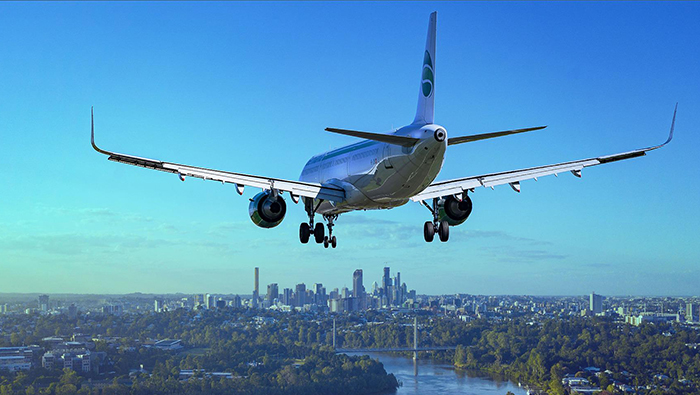
Muscat: Middle Eastern airlines’ traffic climbed 193.1 per cent in July compared to July 2021 showing that the recovery in air travel continues to be strong, according to a new report.
July capacity rose 84.1 per cent compared to the year-ago period, and the load factor climbed 30.5 percentage points to 82.0 per cent, the International Air Transport Association (IATA) said in its passenger data for July 2022.
Total traffic in July 2022 (measured in revenue passenger kilometres or RPKs) was up 58.8 per cent compared to July 2021. Globally, traffic is now at 74.6 per cent of pre-crisis levels.
Domestic traffic for July 2022 was up 4.1 per cent compared to the year-ago period and is now driving the recovery. Total July 2022 domestic traffic was at 86.9per cent of the July 2019 level. China saw a strong month-to-month improvement compared to June.
International traffic rose 150.6 per cent compared to July 2021. July 2022 international RPKs reached 67.9 per cent of July 2019 levels. All markets reported strong growth, led by Asia-Pacific.
“July’s performance continued to be strong, with some markets approaching pre-COVID levels. And that is even with capacity constraints in parts of the world that were unprepared for the speed at which people returned to travel. There is still more ground to recover, but this is an excellent sign as we head into the traditionally slower autumn and winter quarters in the Northern Hemisphere,” said Willie Walsh, IATA’s Director General.
International markets
Asia-Pacific airlines posted a 528.8 per cent rise in July traffic compared to July 2021, the strongest year-over-year rate among the regions. Capacity rose 159.9 per cent and the load factor was up 47.1 percentage points to 80.2 per cent.
European carriers saw July traffic rise 115.6 per cent versus July 2021. Capacity rose 64.3 per cent, and load factor climbed 20.6 percentage points to 86.7 per cent, the second highest among the regions.
North American carriers had a 129.2 per cent traffic rise in July versus the 2021 period. Capacity rose 79.9 per cent, and load factor climbed 19.4 percentage points to 90.3 per cent, which was the highest among the regions for a second month.
Latin American airlines’ July traffic rose 119.4 per cent compared to the same month in 2021. July capacity rose 92.3 per cent and the load factor increased 10.5 percentage points to 85.2 per cent.
The bottom line
“Aviation continues to recover as people take advantage of their restored freedom to travel. The pandemic showed that aviation is not a luxury but a necessity in our globalized and interconnected world. Aviation is committed to continuing to meet the demands of people and commerce and to do it sustainably,” Walsh said.
“We have set a goal to achieve net zero CO2 emissions by 2050, which is in line with the targets of the Paris Agreement. Governments will have the opportunity to support our commitment by agreeing to a Long-Term Aspirational Goal (LTAG) of net zero aviation CO2 emissions by 2050 at the upcoming 41st Assembly of the International Civil Aviation Organisation (ICAO). With governments supporting the same goal and timeline, we and our value chain partners can move forward with confidence towards a net zero carbon future,” he added.